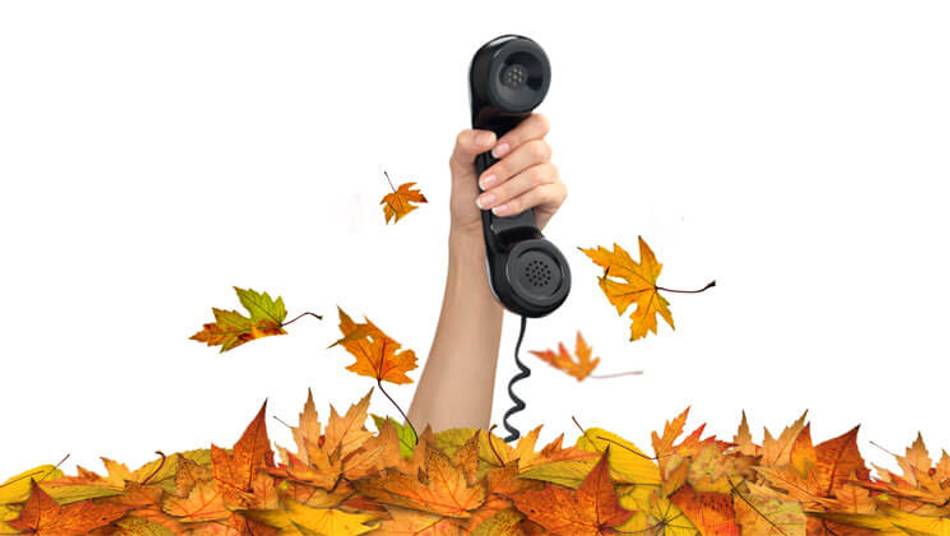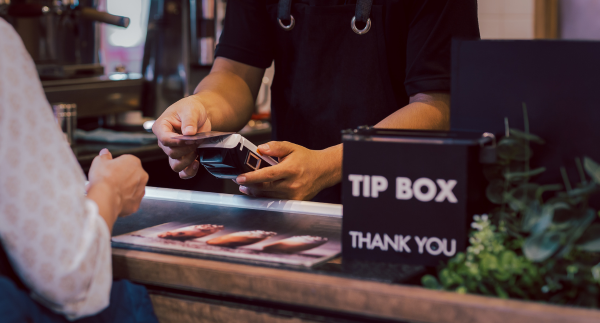Getting calls you don’t want to receive? This guide shows you what you can do to stop unwanted phone calls. Every year in the UK, over 1.5 billion people experience some sort of nuisance or malicious calls – whether they come from telemarketers, phone scammers, identity thieves, or people intending to cause distress. If you have a landline, the chances are you will be one of these people, and will know how unpleasant they can be.
The good news is that no matter what types of unwanted calls you may be receiving, there is no reason why you should put up with them. Below we have listed the most common types of nuisance or malicious calls, together with advice on how to stop them from happening in future.
Silent calls
One of the most common types of nuisance calls is a ‘silent’ call, where you will pick up the receiver, and hear silence at the other end. Although this may not sound like much to worry about, these calls can seem ominous or threatening, particularly to people living alone.
The majority of silent calls are in fact not malicious, but are simply the result of a predictive dialling machine used by telemarketing companies. They dial telephone numbers automatically and then connect the call to an agent when the call is answered, but often these calls are often dropped. This results in the called party hearing silence at the other end.
Despite the fact that these calls are largely harmless, they can still be disruptive and unpleasant. Ofcom is making efforts to reduce the number of silent calls made, and is determined to take action against companies who do not use predictive dialing responsibly.
What should I do if I receive a silent call?
Research by TrueCall has shown that 50 per cent of Britons receive 6 silent calls a month, so if you have experienced a similar volume or less, it is probably safe to assume that these are the result of predictive diallers. If you would like to stop this from happening in future, you can register your number on the Telephone Preference Service (TPS). It is a legal requirement that all organizations do not make calls to numbers on this register, unless you have given your permission.
If you receive an unusually large volume of silent calls, or have reason to feel that they may be malicious, you should contact your phone provider and give them as much information about the calls as you can, they should then advise you on what action is appropriate to take.
Phone scams
There are two types of phone scams which are common in the UK – one which will try to trick you into calling premium rate numbers, and another which will try to retrieve data from you over the phone.
Premium rate phone scams
These scams usually work by duping you into believing you have won a competition, but in order to claim your prize or reward you must ring a premium rate number.
The scam will usually begin with a notification – either by email, phone or post – telling you that you have won a luxury holiday or large cash prize. The message will instruct you to call a premium rate number in order to claim your reward. Once you are connected to the premium rate number, the scammers will try to keep you on the line for as long as possible – usually by making you listen to a long recorded message.
These calls are charged by the minute, so the longer you spend on the phone, the more money it will cost you. Needless to say, you will never receive the promised reward, and will end up with nothing aside from a large phone bill.
What should I do if I am asked to call a premium rate number?
A call, email, or letter from somebody offering you something for nothing should be an immediate alarm bell. If you are asked to dial any premium rate numbers (a number beginning with ‘09’, for example you should assume this is a scam, and ignore the message. If however you believe the offer is genuine (though be warned – this is unlikely), you should do some research about the organization on the internet before making a call.
Voice phishing phone scams
Voice phishing, or ‘vishing’ scams work by using voice response telephone systems to dupe you into handing over personal data; such as bank account information or credit card details.
Typically, you will receive a recorded message asking you to call your bank or credit card company regarding an issue with your account. You will then be directed to call a number which features recorded messages copied from the real institution, making it almost impossible to tell it is a fraudulent number. You will be instructed to provide credit card numbers, PINs and other data in order to confirm or update your account.
What should I do if I receive a voice phishing call?
You should be very wary if you receive a call from any institution asking you to hand over personal information – such as a credit card number, pin, or security password – as a legitimate institution would never ask for these details in an unsolicited call. If you are in any doubt, you should contact the institution directly using the number from your account statement.
If you think you have been a victim of phone fraud, you should immediately contact the institution that was masqueraded and report the incident; and they should then cancel any compromised accounts. If the information you provided could be used to access accounts from any other institutions – such as your credit card company, you should contact them also.
If you believe you have been a victim of a scam, you can report it to one of the contacts listed below.
Malicious calls
The scariest type of unwanted phone calls; a malicious call is one where you are abused or threatened over the phone. This is a form of harassment, and is a criminal offense.
Malicious calls can happen for all sorts of reasons, and come from any number of people. They may be made by someone you know who has a grudge against you, or a complete stranger who simply finds it funny to scare people. One thing they all have in common is that they intend to cause distress, and most of the time they succeed.
What should I do if I receive an abusive or threatening call?
If you receive an abusive or threatening call, the best thing to do is to either hang up, or leave the phone off the hook and walk away. This way, the caller will be denied the satisfaction of a response. Whether you know who the caller was or not, you should notify your phone company about the call and tell them as much about the incident as possible. They should be able to trace the call and bar the number from getting through again.
If a call is overly abusive, particularly if it is threatening, you should contact your local police station. If the call gives you reason to believe you or someone in your family may be in real immediate danger, then you must call 999 straight away.
How can XLN stop unwanted calls?
If you are an XLN Telecom customer, and have received a nuisance or malicious call, you should contact XLN’s customer service team (0844 880 9000), who will help you take the appropriate action. XLN also offers the following service packages to help protect you against unwanted phone calls:
Call Barring
With call barring you can stop premium rate calls being made from your phone, which will protect you or others in your household against premium rate phone scams. You can also use this service to block certain types of numbers from calling in to your phone.
Anonymous Call Rejection
Anonymous Call Rejection will block all calls from people who have withheld their number, which will generally cover phone scammers, predictive dialers and malicious callers. Callers who have withheld their number will receive the following announcement: – “The person you are calling is not accepting anonymous calls, please re-dial without withholding your number”.
Choose To Refuse
If you do receive unwanted phone calls, ‘Choose to Refuse’ lets you block the number and prevents them from calling again. Simply entering 14258 followed by ** after hanging up will activate barring. You can also input specific telephone numbers manually with this service. Up to 10 telephone numbers can be stored within a personal data store, the eleventh entry will cause the oldest telephone number saved to drop out of the list.
Callers from numbers that have been barred using the service will receive a network announcement which says: “The person you are calling is not accepting calls from you”. They will not be charged for the call.
Final checklist
Make sure you…
- Register your number on the TPS site if you wish to stop calls from any organisations you have not specifically authorised.
- Do not respond to promises of prizes or rewards if they require you to call a premium rate number
- Do not respond to unsolicited requests for personal information, such as bank details or credit card information.
- Do not give a malicious caller the satisfaction of a response – walk away or hang up.
- Do not hesitate to contact your phone provider if you do receive any unwanted phone calls.
- Call 999 immediately if you receive a call which makes a direct threat to you or those around you.
Links & Contacts
XLN Customer Service (0344 880 7777)
To report a scam:
For scams in general – Citizens Advice
Tel: 08454 04 05 06
For investment scams – Financial Services Authority
Tel: 0845 606 1234
Email to: scams@oft.gsi.gov.uk




